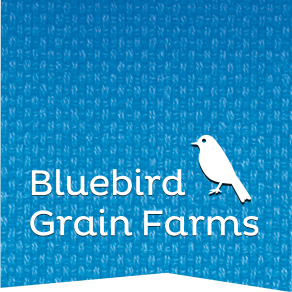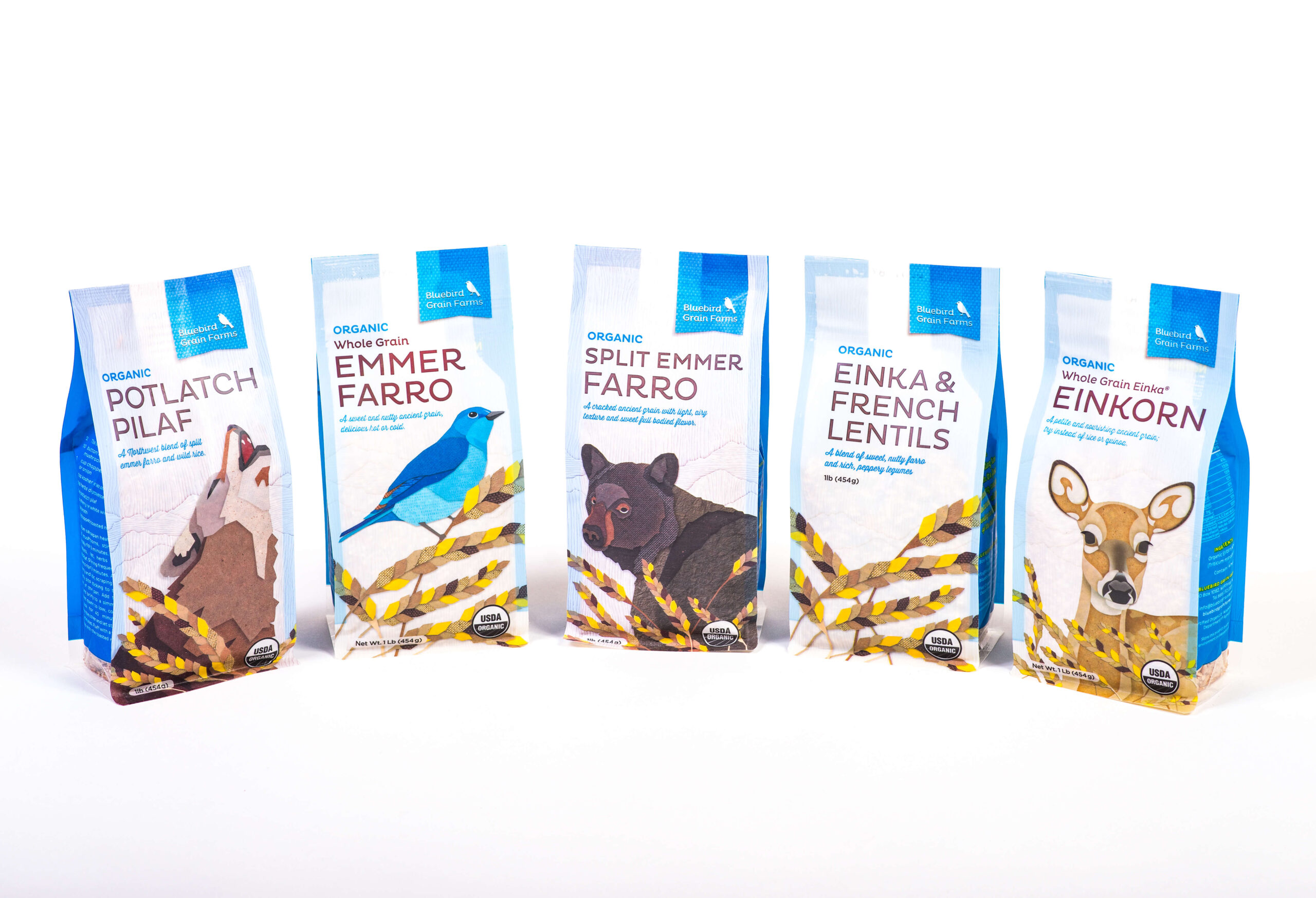
Ashley Lodato, Bluebird Grain Farms staff writer. Photos courtesy of James Hannah Austin V
A childhood spent on a farm normalized the mammalian birth process for James Hannah Austin V, and quite likely planted the seeds for an eventual career in midwifery. Raised on the same Brinklow, MD sheep farm her father grew up on, Austin had a unique upbringing that included a trapeze in the living room and a 15′ pole she and her sister, Marika (who Austin says “was and is my best companion”), would climb to get a quarter at the top. On their birthdays, the Austin sisters got to eat a picnic lunch on the roof of their home. For fun, Austin’s dad would attach a hall carpet to the back of the tractor and the sisters would try to surf it without tumbling off. The family pet was a flying squirrel. Clearly, Austin was not a girl raised to settle into a conventional life and career track.
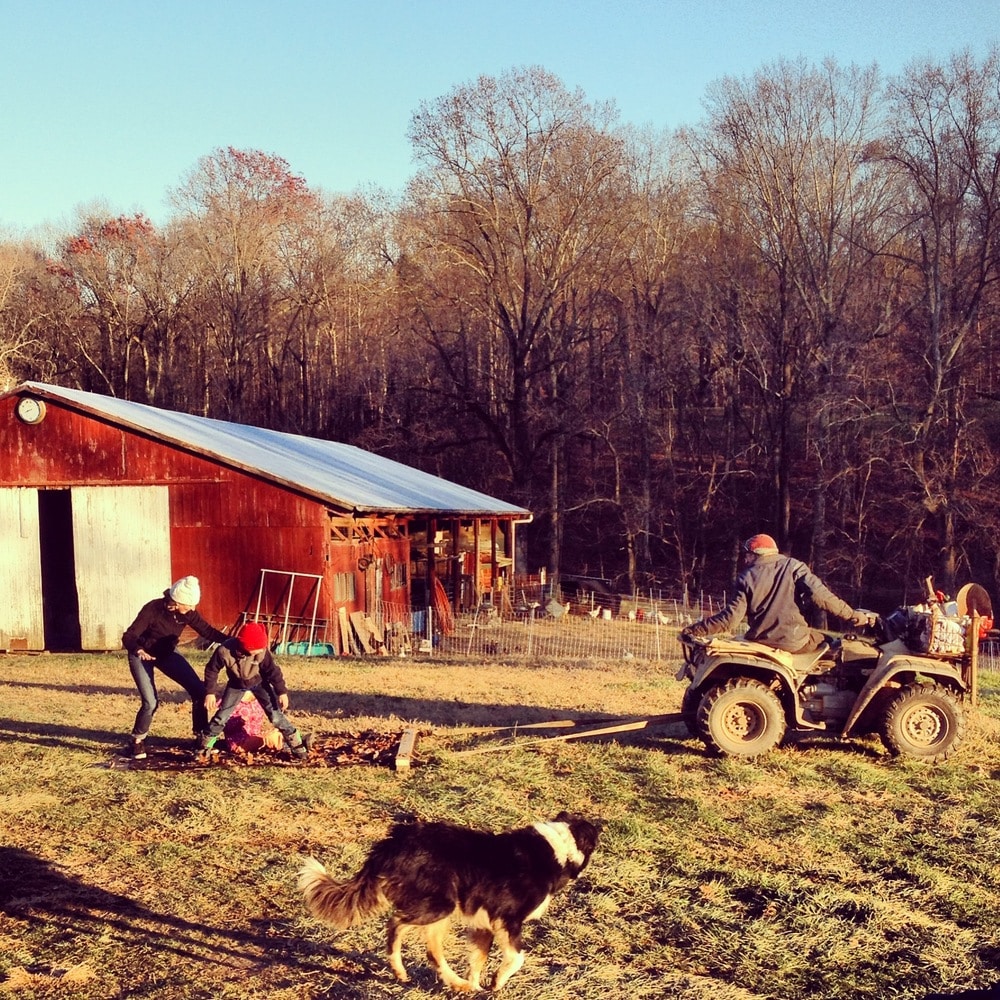 She is, however, someone who knew all along that she wanted to be a midwife. “I think birth is the neatest thing in the world, and wouldn’t it be rad if we could all do work with what we believe to be the coolest thing in the world?” Austin asks. A logical path might have been to pursue veterinary medicine, but Austin says “I like talking to humans too much.” In college, although she knew midwifery was her goal, she says she “felt too young to be in the room with something as ancient as birth” so she “did a LOT of different things on my way to midwifery.”
She is, however, someone who knew all along that she wanted to be a midwife. “I think birth is the neatest thing in the world, and wouldn’t it be rad if we could all do work with what we believe to be the coolest thing in the world?” Austin asks. A logical path might have been to pursue veterinary medicine, but Austin says “I like talking to humans too much.” In college, although she knew midwifery was her goal, she says she “felt too young to be in the room with something as ancient as birth” so she “did a LOT of different things on my way to midwifery.”
“A LOT” is no overstatement; before diving into reproductive healthcare, Austin led international outdoor trips for high schoolers, taught preschool, taught high school Spanish, volunteered as a firefighter and ski patroller, worked in product development, and embedded with a family as an “adventure nanny.” Before becoming a registered nurse, (RN), Austin worked for Synapse Product Development, Clif Bar, and Seattle Farm Tables; after completing her RN certification she treated patients at a residential eating disorder treatment center (The Emily Program), worked at Sea Mar Community Health Center’s Maternity Support Services, and served at Upstream as a trainer for a patient-centered contraceptive counseling model.
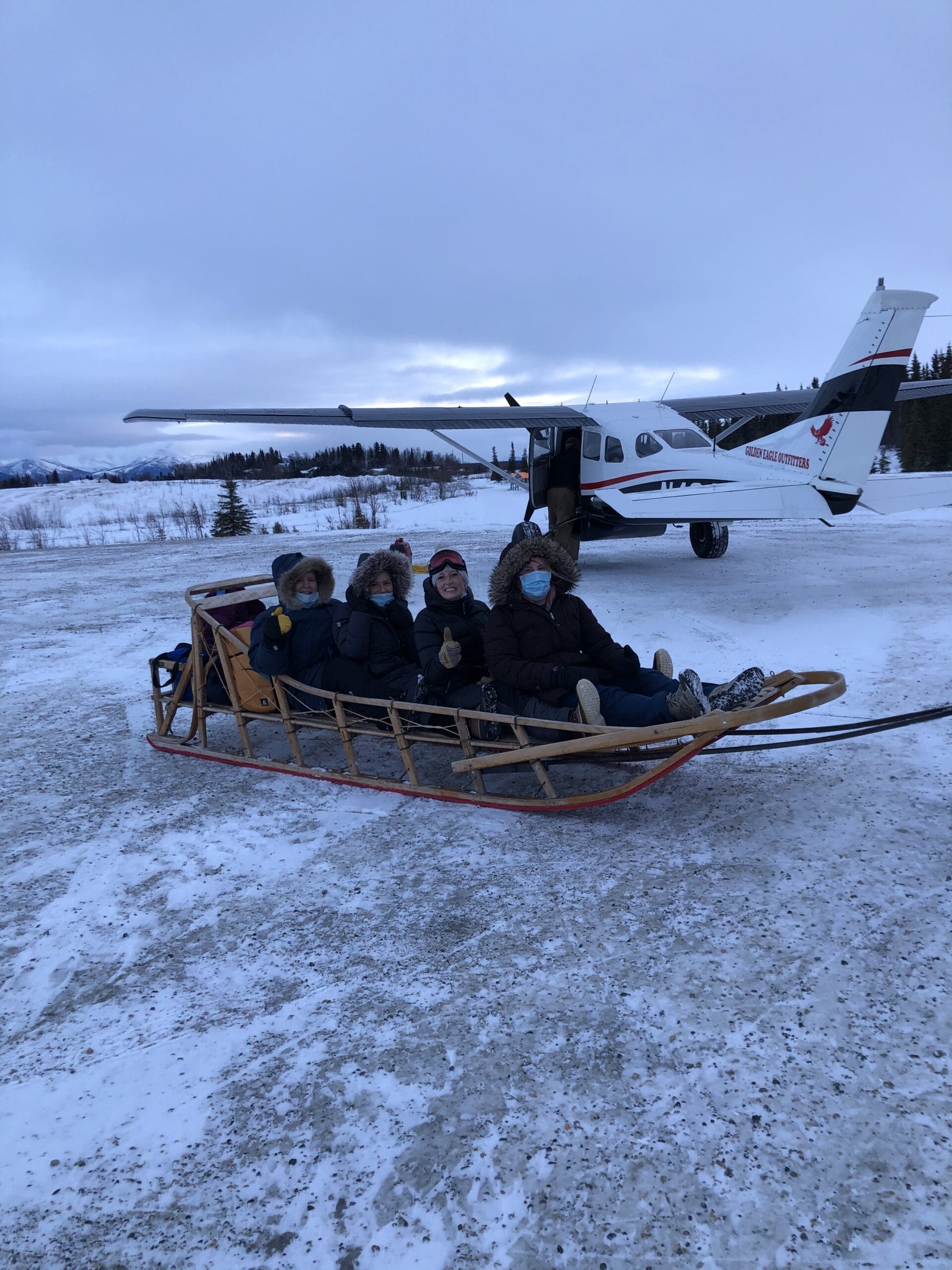 With her rural roots and love of the outdoors, Austin says she never expected to find herself in any city for long, but “Seattle has deep community for me and being among so many friends was an inspiration.”
With her rural roots and love of the outdoors, Austin says she never expected to find herself in any city for long, but “Seattle has deep community for me and being among so many friends was an inspiration.”
“Seattle in itself is spectacular,” Austin adds, “from being watched over by Rainier to my favorite dancefloor at The Little Red Hen, and then to be surrounded by so many more mountains and water. I didn’t suffer from the urban environment nearly as much as I expected.”
When the COVID19 pandemic hit, Austin had finished all the didactic coursework for earning her Doctor of Nursing Practice (DNP) degree in midwifery and was getting ready to start clinical training. Clinical sites, however, were removing students from their practices. “For good reason,” Austin acknowledges. “We didn’t know much about COVID and there wasn’t enough PPE, or time to teach.”
Both practical and resourceful, Austin started looking for a job that would guarantee income and experience while she paused her education. Kotzebue, Alaska popped up in her job search. “I’ve always wanted to live and work rurally but Kotzebue kicks beyond rural to remote,” Austin says.
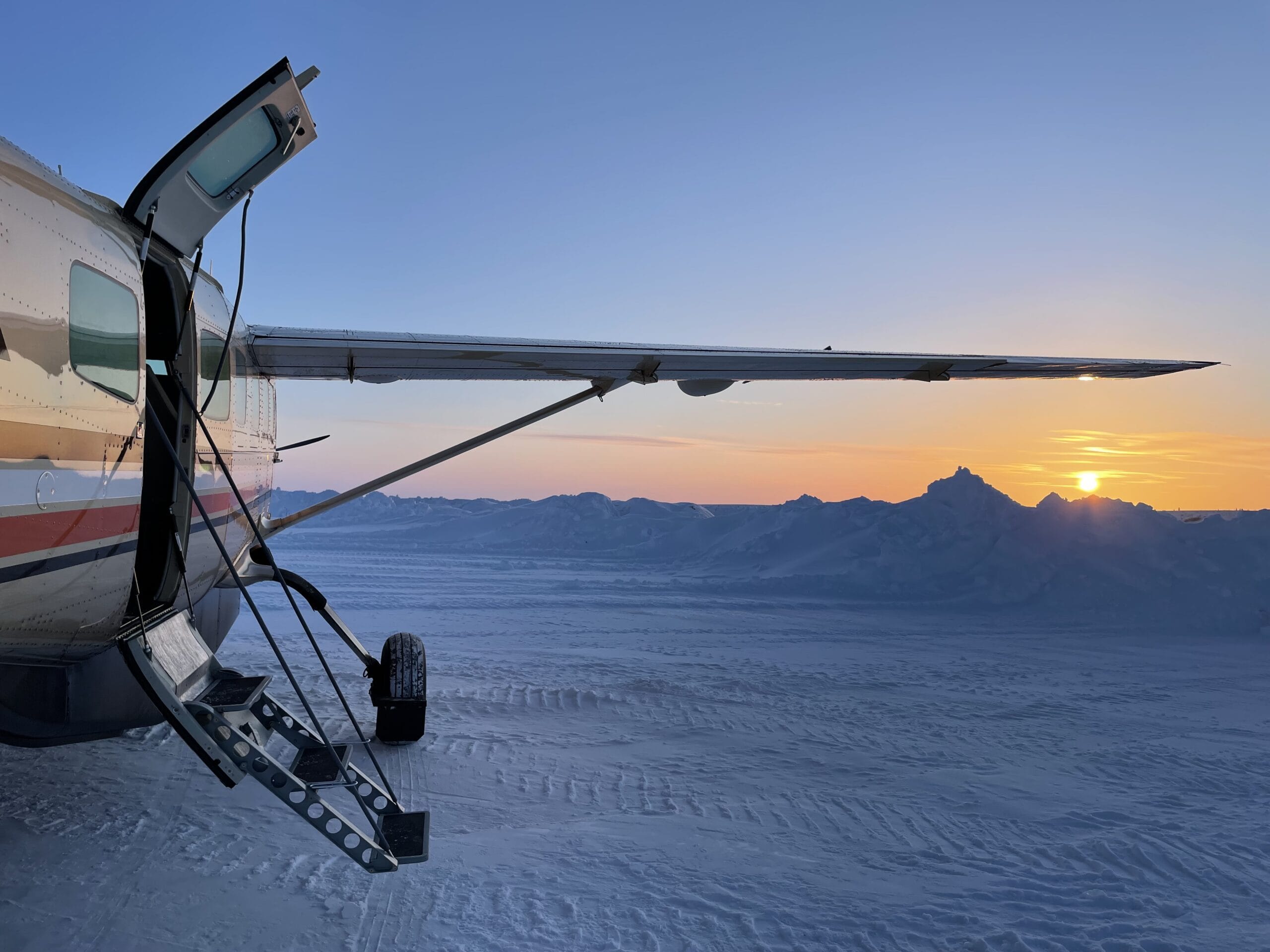 Located on a gravel spit at the end of Baldwin Peninsula about 50km north of the Arctic Circle on Alaska’s western coast, Kotzebue has been inhabited by the Inupiaq people for thousands of years; they called it Qikiqtaġruk–“almost an island.” It’s the hub for the Northwest Arctic Borough, an area the size of Indiana with a population of about 8,000 people (Indiana is home to 6.7 million) living in ten villages that can only be accessed by air, snowmobile in the winter, or boat in the summer. To board the Bering Air aircraft that carries them around the region, James and the other medical staff provide their names and weights–no TSA screening, no liquids confiscation, shoes definitely remain on.
Located on a gravel spit at the end of Baldwin Peninsula about 50km north of the Arctic Circle on Alaska’s western coast, Kotzebue has been inhabited by the Inupiaq people for thousands of years; they called it Qikiqtaġruk–“almost an island.” It’s the hub for the Northwest Arctic Borough, an area the size of Indiana with a population of about 8,000 people (Indiana is home to 6.7 million) living in ten villages that can only be accessed by air, snowmobile in the winter, or boat in the summer. To board the Bering Air aircraft that carries them around the region, James and the other medical staff provide their names and weights–no TSA screening, no liquids confiscation, shoes definitely remain on.
“The setting presents both logistical challenges and myriad delights” Austin says of her new home. “There aren’t full time RNs in the village clinics, so I’ve been to all the villages to do COVID testing, vaccines, and other medical treatments that can’t be done by the Community Health Aide Practitioners (CHAPs), a very Alaska program that trains folks to provide healthcare in their communities and be the liaison to the Kotzebue-based providers.”
Whereas in her Seattle reproductive healthcare work Austin would don scrubs and clogs, for her Kotzebue medical visits Austin dresses in layers of puffy pants and jackets, climbs into a small plane, and flies low across the landscape, watching the weather closely. Clear skies make a trip uncomplicated, while low visibility or a storm mean that Austin and other providers “might be spending more than the planned time in the village.”
Austin loves the trips. “Every time I can look an elder patient in the eye and say ‘I’ve been to your village’–I just can’t express how much of a positive difference it makes to be able to have that connection,” she says.
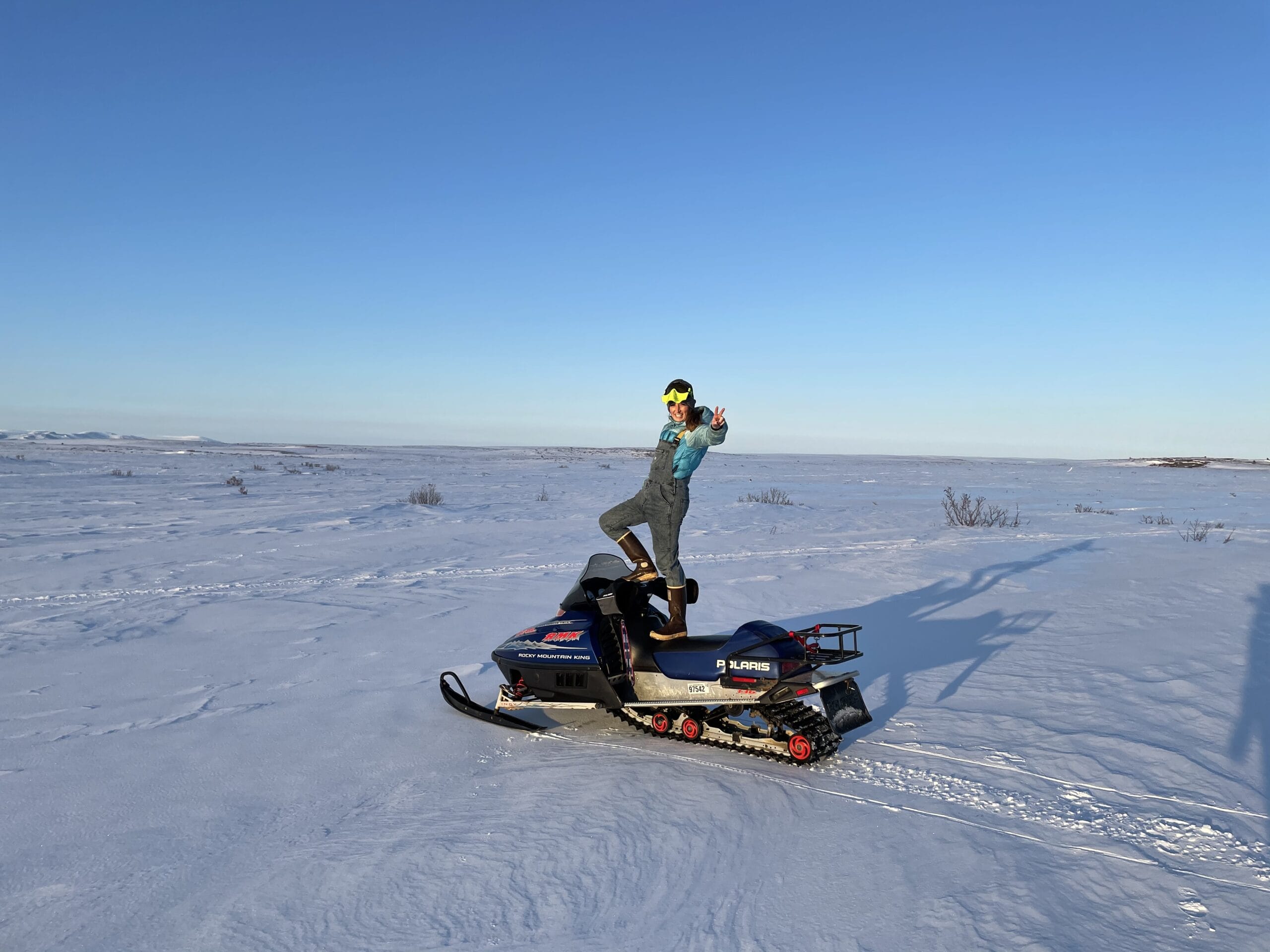 Still, the logistics are extremely difficult, Austin says. “We have to plan our care around flight schedules and when patients need a higher level of care and the weather is bad, we have to wait until it’s safe to get a medevac in to pick them up.”
Still, the logistics are extremely difficult, Austin says. “We have to plan our care around flight schedules and when patients need a higher level of care and the weather is bad, we have to wait until it’s safe to get a medevac in to pick them up.”
Austin and her team catch babies in Kotzebue, but only if the patient is low risk. “We don’t give epidurals, or Pitocin augmentation, and we don’t have an operating room,” she says. “If you have risk factors, or if you prefer a hospital with more resources, you have to go to Anchorage around 36 weeks and wait until you go into labor. It’s hard to take that much time off work, away from your support system, and far from home.”
Catching babies is only part of Austin’s midwifery work, she reminds us. “Midwives are experts in reproductive healthcare from menses to menopause. You’ll hear us called ‘guardians of the normal,’ because we don’t automatically pathologize pregnancy, birth, and the postpartum period. In many other countries midwives manage the majority of uncomplicated pregnancies. In 2021, Certified Nurse-Midwives (CNMs) attended 8% of all deliveries in the United States, up from 3.2% in 1989, so we’re making some progress.”
As an Arctic dweller raised on homegrown produce, free-range chicken eggs, and the abundance of a farm with a gardening season in a temperate climate, Austin sometimes finds her food fantasies turning to “sun-warmed stone fruit and garden fresh vegetables.” Alaska’s growing season is bold but brief, and Austin says she was traveling frequently for work last summer and didn’t do any substantial growing, although she has microgreens sprouting indoors.
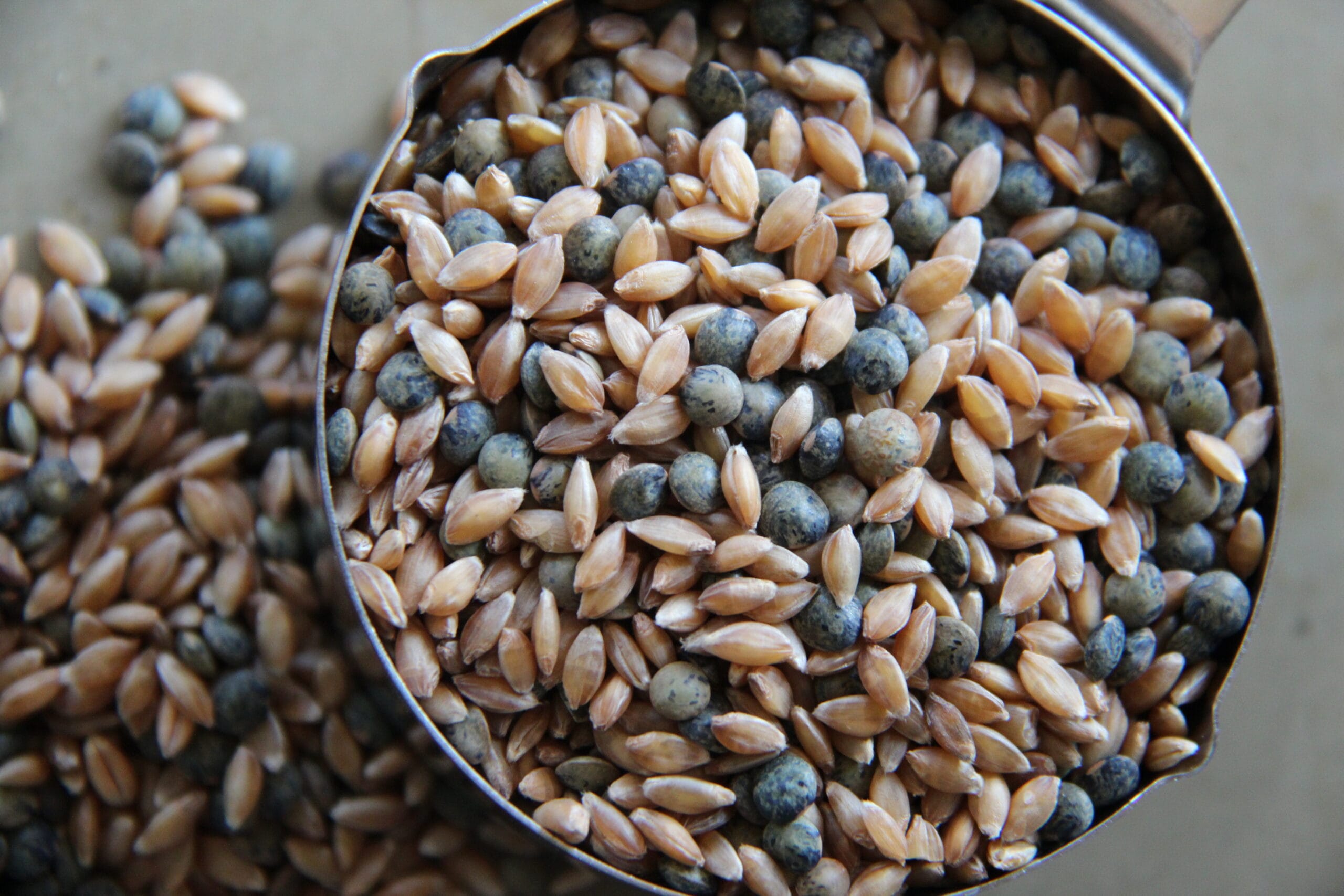 Cooking, though, remains a source of pleasure for her. “I grew up with the value of family dinner, often with our own produce, chicken eggs, or venison as part of the meal. My mom and dad both serve food made with love. We are short on fussy recipes, big on a little of this and a little of that. I love to feed people. Sharing candlelit vittles in the long dark days and beachside picnics during the long summer days is essential to happiness up here, and everywhere.”
Cooking, though, remains a source of pleasure for her. “I grew up with the value of family dinner, often with our own produce, chicken eggs, or venison as part of the meal. My mom and dad both serve food made with love. We are short on fussy recipes, big on a little of this and a little of that. I love to feed people. Sharing candlelit vittles in the long dark days and beachside picnics during the long summer days is essential to happiness up here, and everywhere.”
Despite the limited variety and expense of food available in the local grocery stores, Austin says she trusts the freezer she has filled with game meat and the pantry she has stocked with staples, including her favorite Bluebird Grain Farms organic products: Potlatch Pilaf, Emmer Farro, Einka & French Lentil Blend, and Old World Cereal. “With a pantry full of Bluebird grains and freezer full of game, I know I’m going to be smiling with every meal,” Austin says. She particularly favors the Potlatch Pilaf with elk burger, often making a big pot of it once a week to fuel her through 12+ hour work shift. “The flavor and texture of Bluebird grains is unmatched,” she says.
Austin was introduced to Bluebird Grain Farms through a family connection: her father—a blacksmith farmer who sells sheep for religious sacrifice—is a childhood friend of Farmer Sam Lucy’s cousin, Frank Gould. “The Goulds are a big family and have always taken the best care of me,” Austin says. “They also have a cousin in just about every beautiful place in the world. When I lived in Seattle I loved coming to the Methow to ski and explore. Frank sent me over to visit Bluebird Grain Farms, and Brooke and Sam Lucy welcomed me into their home.” They also provided “rescue wheels” when Austin’s friend’s van broke down. “Perhaps a tough ask of a new friendship, but they were there with a grin,” she says.
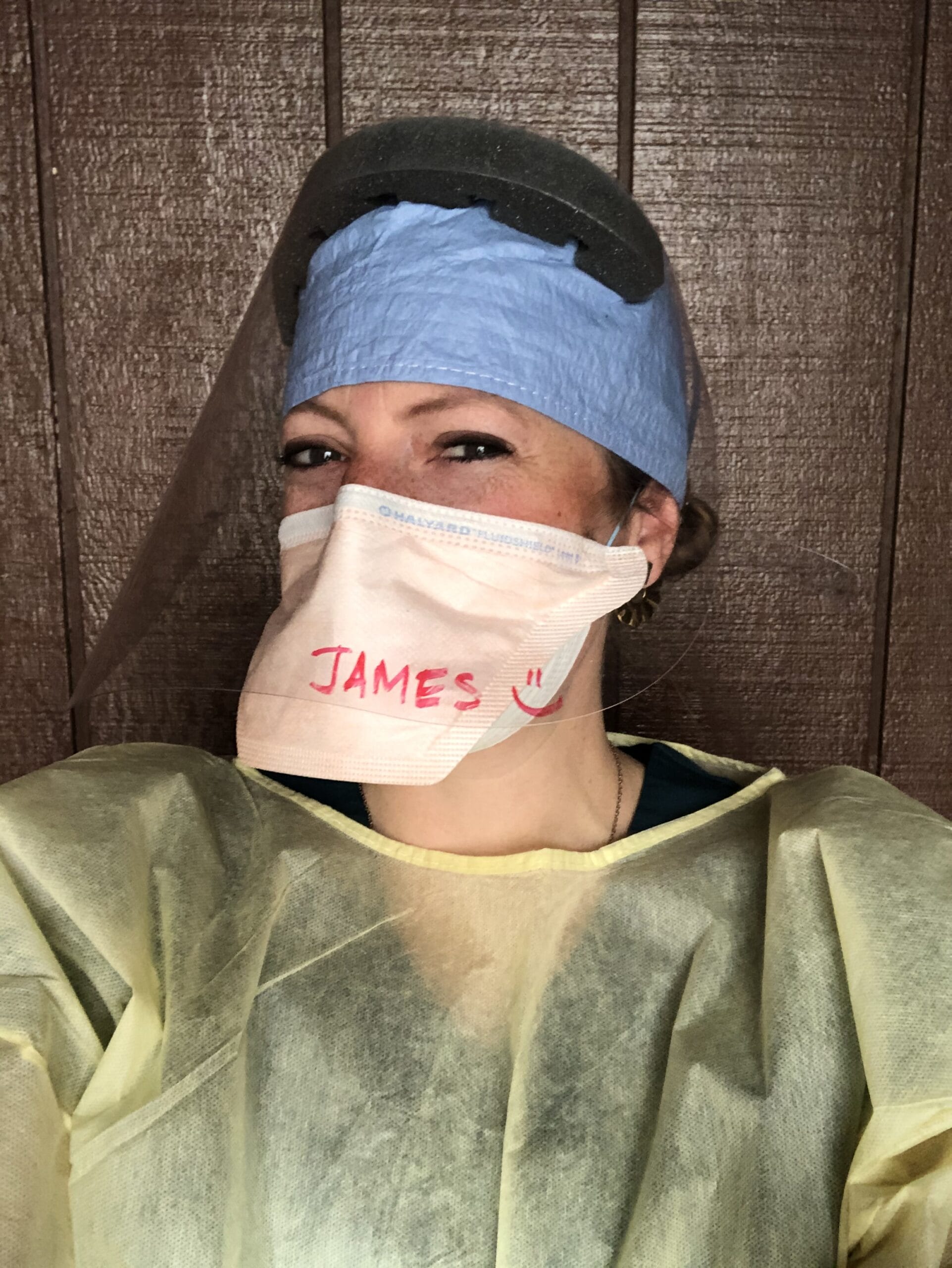
In December 2021, Austin finally earned the DNP degree she began in 2017. She found herself the only December graduate, in the Arctic, on a -40° degree day, “far away from Seattle University pomp,” she says. She celebrated with a photo shoot, and then went back to work in the Kotzebue ER.
Raised with a Quaker influence (she attended Sandy Spring Friends School, a K-12 Quaker school, where her mother was the school librarian), Austin says she treasures some of the wisdom she gained from Quaker school and summer camps. She still carries with her a piece of fabric from her high school graduation arch that reads “May you always have silence in your life.” This may sound like an incongruous blessing for a woman who delights in the sound of a baby’s first wails, the thwack thwack of a bush plane’s propeller beginning to turn, or the throaty hum of the Polaris she uses to get around on the sea ice, but for Austin it’s fitting: a celebration of those small moments of silence and reflection, the awe of Aurora Borealis, a good book in front of a woodstove, a flicker of candlelight piercing the Arctic winter, a solitary skate ski across a frozen expanse—all those tiny reminders of the wonder of life.
Learn more about Austin and see glimpses of her life in Kotzebue on Instagram or visit her doula services website, Quailhill Baby.
